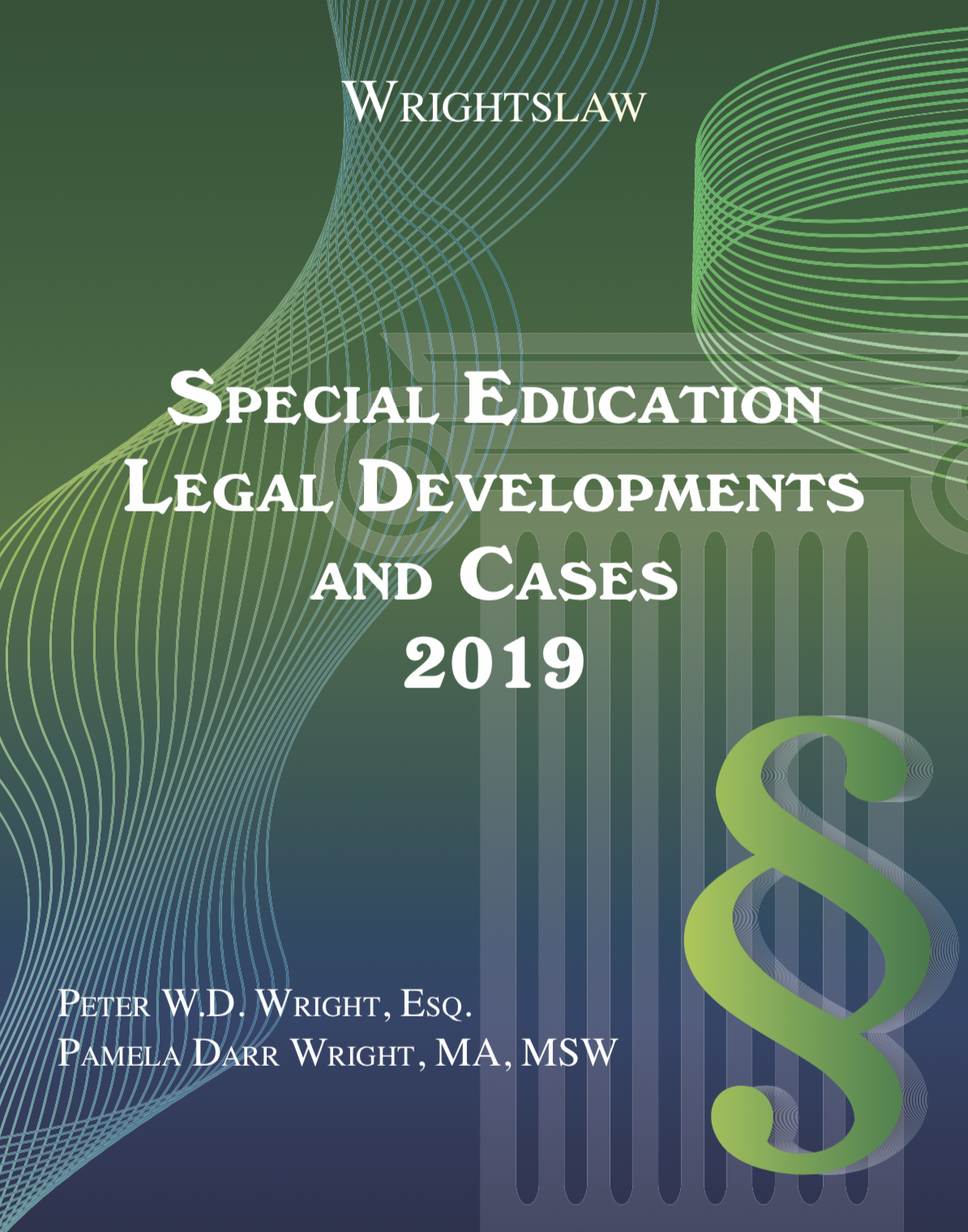 |
|
|
| Home > NCLB > Why No Child Left Behind is a Good Law - and How to Use It by Pete Wright |
|
|
And How to Use It by Pete Wright Print
this page **********
Note:
Congress has reauthorized the Elementary and Secondary
Education Act (ESEA), the statute formerly known as No Child Left
Behind. The new statute, Every Student Succeeds Act, was signed into law by President Obama on December 10, 2015. ********** No Child Left Behind is a good law. Enforcement of this law (as with enforcement of IDEA) will be a problem. Some of us old-timers remember the early 1970’s, before the special education law was passed. It was perfectly legal for schools to expel children with disabilities permanently for reasons related to their disabilities. You may know Judy Heumann, former head of special ed for the U. S. Department of Education. Because she was in a wheelchair, she was not allowed to attend school in New York City - she was deemed a "fire hazard." When Public Law 94-142 (now IDEA) was passed in 1975, schools complained loudly, just as they are complaining about No Child Left Behind today. Initially, several states refused to accept federal special ed funding so they would not have to comply with the law. During the early 1980s, children with autism in Virginia were deemed to be suffering from a medical condition, and not to have educational disabilities. Decision after decision upheld school districts' right to deny special education services to children with autism. We’ve
come a long way. Enforcement
Problems I
think it is unrealistic to expect the U. S. Department of Education
to do this. As a practical matter, they view themselves as educators,
not as law enforcers or prosecutors. They are different from the investigators
and attorneys with the U. S. Department of Justice - and that's a problem.
From
the passage of P.L. 94-142’s in 1975, move forward 25 years to
2000, when the National
Council of Disability published their explosive report, “Back to
School on Civil Rights” (also called the IDEA
Compliance Report). On January 25, 2000, the National Council on Disability reported to the President and Congress that as “a result of 25 years of nonenforcement by the Federal Government, parents are still a main enforcement vehicle for ensuring compliance with IDEA.(Report, page 70) In their report, NCD explained that a fundamental problem with IDEA is that the U.S. Department of Education is a funding and programmatic agency, not an enforcement agency. “This
report focuses primarily on the enforcement mechanism, policies, and
activities of the Department of Education in relation to IDEA. Because
of its integral relationship to enforcement, our researchers carefully
evaluated the Department of Education (DoED) compliance-monitoring system
in use at the time our research was conducted.” (Report, page 18)
“DoED
has been monitoring states and states have been monitoring local education
agencies since the mid-1970s as intended by law. As part of its responsibility
for the administration of IDEA, DoED has been issuing monitoring reports
that detail state noncompliance and deficiencies for more than 20 years.”
(Report, page 40) “The
1997 amendments to IDEA explicitly authorize the Department of Education
to refer noncompliant states to the Department of Justice for investigation,
litigation, or both. While the Department of Education has likely always
had this authority, the 1997 amendments make such authority explicit
and statutory.” (Report, page 45) You can read the IDEA Compliance Report, "Back to School on Civil Rights" on the National Council on Disability site. The full text of the Report is also available on the Wrightslaw site. Feds
Withold Funds Reading,
Reading Programs, Research Unqualified
Staff When the parents requested the due process hearing, the school had still not provided the requested information, so I wrote a letter to the school board attorney, with a copy to the Hearing Officer. I included a copy of my earlier letter, quoted a portion of it, and explained that: “We are waiting for the 'scientifically based research' that was relied upon to support the continued use of ‘Patterns for Success’ with K.” “Please advise if you are willing to stipulate for the record that the York County School Division:
“If you are unwilling to enter into such a stipulation, please advise as to when the requested information will be produced, or, in the alternative, if it will be necessary that I request the Hearing Officer to issue a subpoena duces tecum to force production of that information.” This caused a ruckus and led to a telephone conference call with the Hearing Officer. During
the conference call, the Hearing Officer asked if I was asking that
he make a finding that the school district's program was in violation
of NCLB. The Hearing
Officer was relieved. He said he had reviewed information about NCLB
on the USDOE website, then read NCLB information on the CEC site, then
accessed information about NCLB on the VA Dept of Ed site. He said it
seemed that no one had a good handle on the law, that opinions were
all over the place. I agreed that there are many misunderstandings about
the law. While the
Hearing Officer never mentioned NCLB in his ruling, accountability,
charting educational progress, and the need to teach reading skills
was central to his ruling. What do
I think about the No Child Left Behind law? I think it's great! Pete Wright Links in this Article Back
to School on Civil Rights by the National Council on Disabilities Rev. 12/1/05
Copyright © 1998-2025, Peter W. D. Wright and Pamela Darr
Wright. All rights reserved.
Contact Us |
Press l Mission l Our Awards l
Privacy
Policy l
Disclaimer l
Site Map
|
|||||||||||||||||||||||||||







